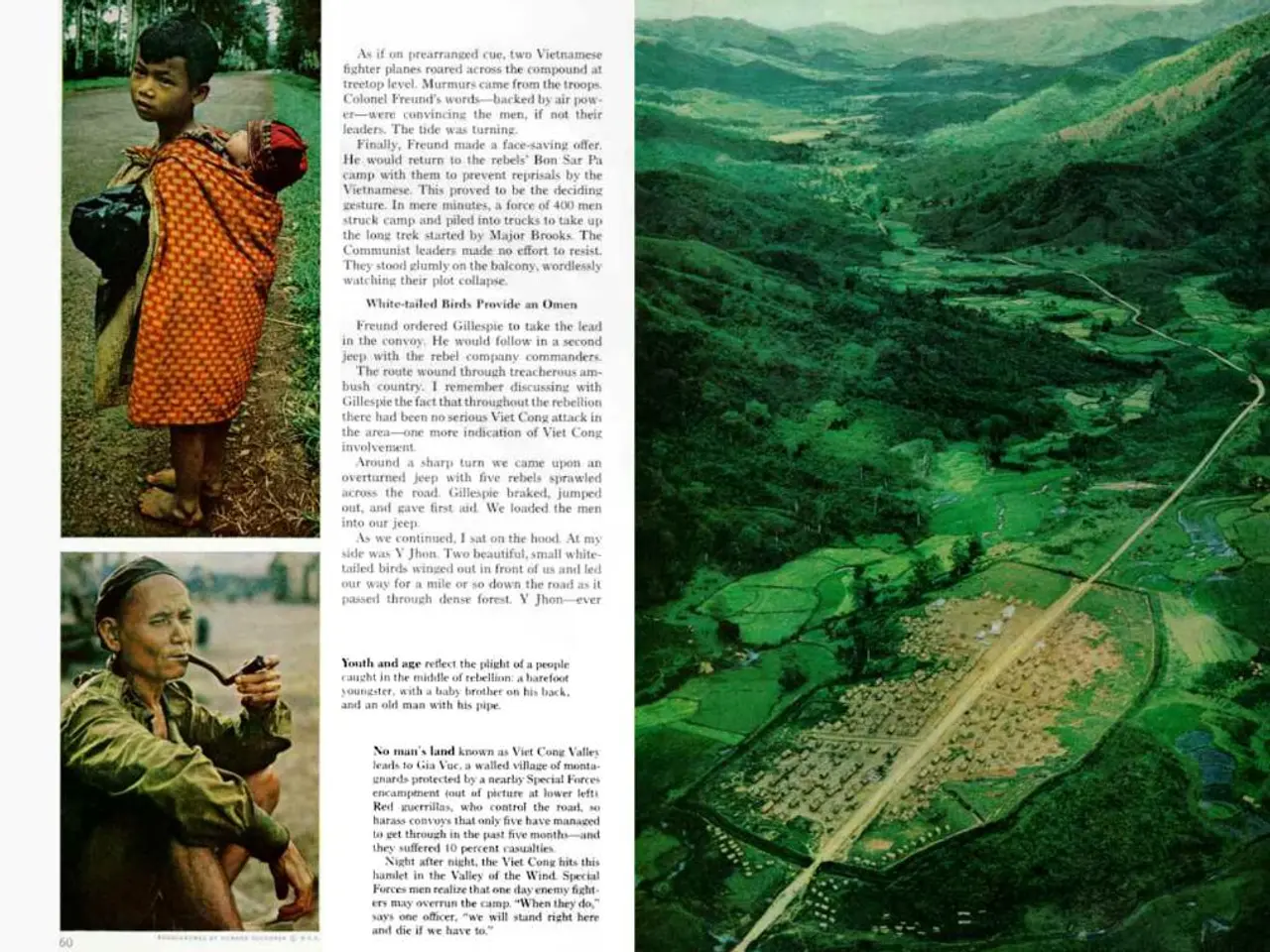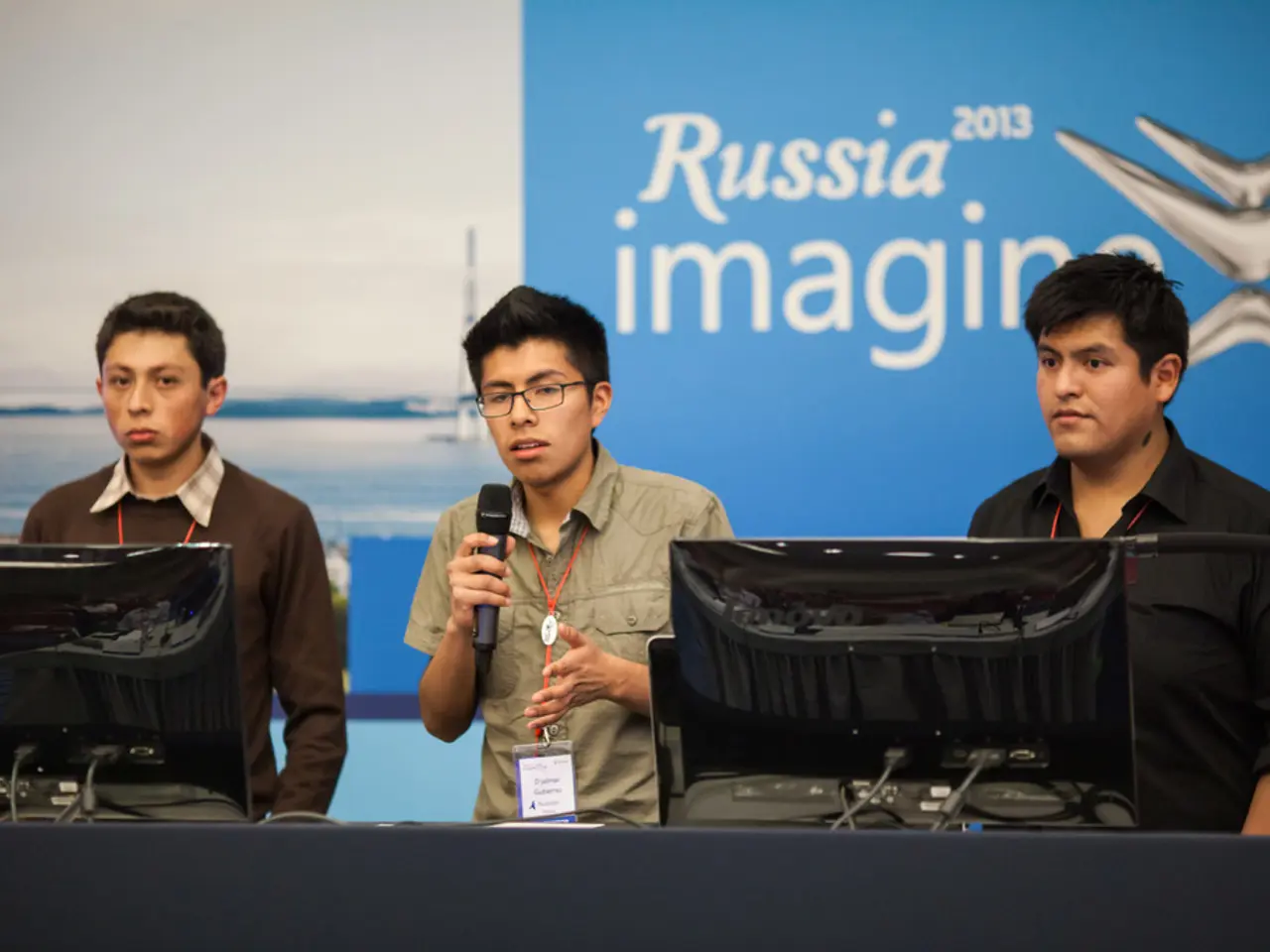International appeals for immediate action as Pakistan labels Gaza's food shortages as deliberate political starvation
In a powerful address at a United Nations Security Council briefing, Pakistan's ambassador, Asim Iftikhar Ahmad, has described the current humanitarian crisis in Gaza as a full-scale catastrophe. He highlighted the indiscriminate bombardment, total blockade, deliberate deprivation, and starvation, and escalating violence and displacement in the region.
Ahmad condemned Israel's plan to occupy Gaza City, calling it an attempt to erase Palestinian presence and a campaign of ethnic cleansing. He emphasised rampant famine, civilians being shot while trying to collect food, and the failure of the humanitarian system amid these dire conditions.
The Pakistani ambassador has urged the UN Security Council to take immediate action under Chapter VII of the UN Charter to stop Israel’s planned occupation of Gaza City. He demanded an immediate ceasefire, release of hostages, and prisoner exchanges; a complete halt to forced displacement; unhindered humanitarian access to civilians inside Gaza; enforcement measures including the potential deployment of an international protection force to safeguard the besieged population; and sanctions and accountability for violations.
These calls align with warnings from UN officials who stress that Israel's plans risk triggering “another calamity” for Gaza, endangering millions, causing further displacement, death, and destruction. The UN Secretary-General and human rights chief have called for a full, permanent ceasefire as the only path to end ongoing violence and the humanitarian catastrophe.
Aid agencies and the United Nations have warned of mass starvation and rising child malnutrition in Gaza, home to around two million people. Palestinians in Gaza are routinely forced to choose between risking death by starvation or risking death by gunfire to reach food aid sites. The Director-General of the FAO has warned that Gaza is on the brink of a full-scale famine.
Ahmad's statements echo earlier warnings from UNICEF, the UN Secretary-General, and the World Food Programme that described the situation in Gaza as a "perfect storm of suffering" and a "disaster unfolding before our eyes." Gaza is described as "the most extreme example of politically driven starvation in the 21st century."
It is important to note that Israel's blockade, imposed since early March, has severely restricted access to food, water, and medical supplies in Gaza. Over 1,200 aid-related killings have been documented in Gaza since May, and at least 175 Palestinians, including 93 children, have died of starvation.
Ahmad advocated for the implementation of a two-state solution based on pre-1967 borders with East Jerusalem as the Palestinian capital. He emphasised that human rights are universal and indivisible, and that justice must never be selective.
The New York Times has reported on the deadly circumstances surrounding the delivery of humanitarian aid in Gaza. The crisis in Gaza remains a critical issue that requires immediate attention and action from the international community.
- The UN Secretary-General and human rights chief, in agreement with UNICEF and the World Food Programme, have described the situation in Gaza as a "perfect storm of suffering" and a "disaster unfolding before our eyes," which mirrors the assertions made by Pakistan's ambassador, Ahmad.
- The escalating violence and disproportionate influence of war-and-conflicts in the world, as illustrated by the humanitarian crisis in Gaza, has led Ahmad to advocate for a two-state solution based on pre-1967 borders with East Jerusalem as the Palestinian capital, emphasizing the universality and indivisibility of human rights.
- As political and general-news headlines continue to unfold, art might not often intersect with the events in Gaza, but the plight of the people in Gaza could well become a subject of poignant art, serving as a symbol of resistance, hope, and the enduring will to survive against adversity.








